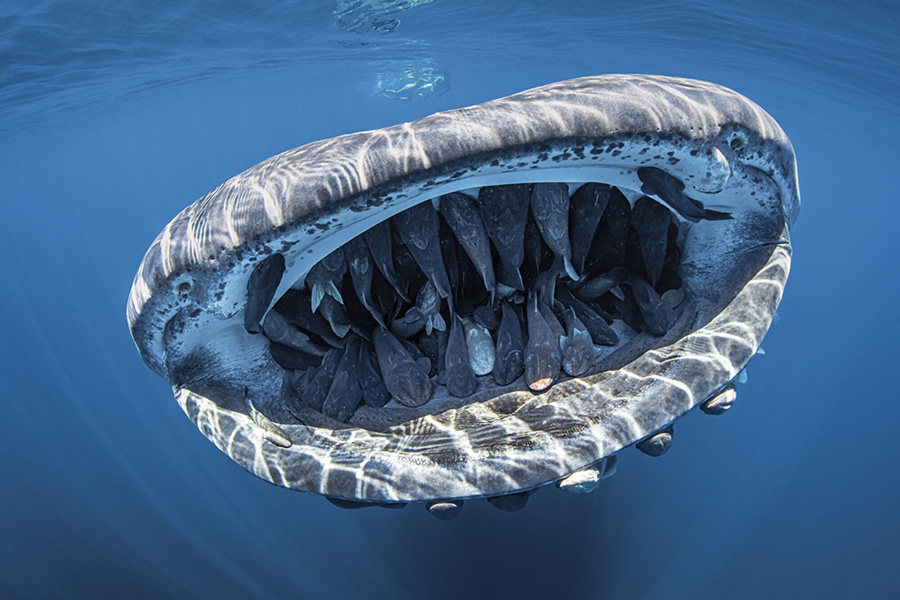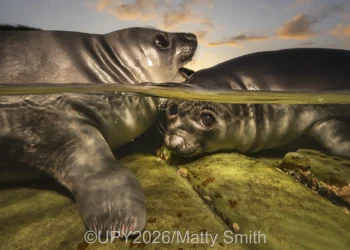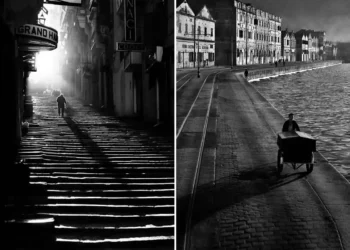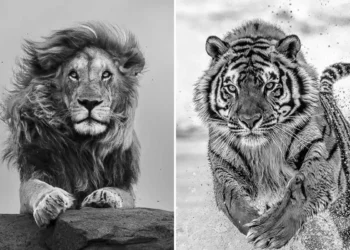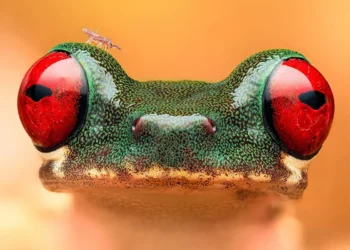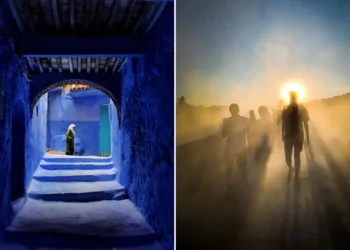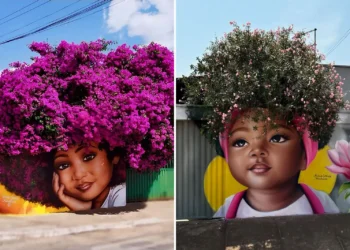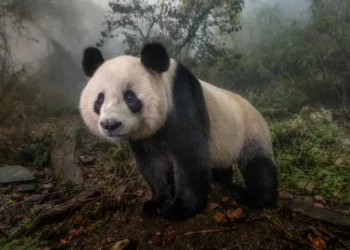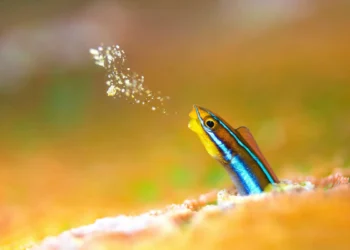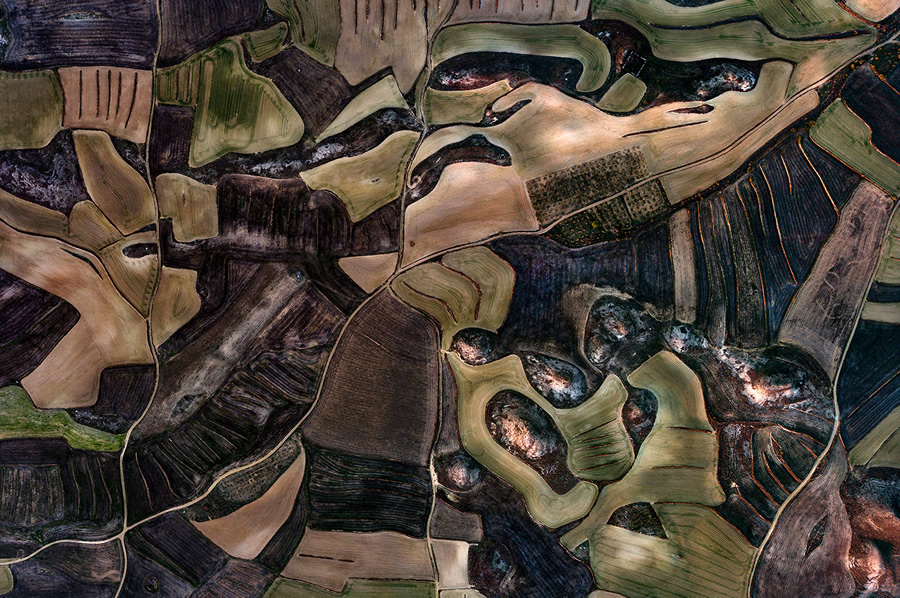Here are stunning winning images of Scuba Diving Magazine’s 2020 Underwater Photo Contest. There are 2,636 photos submitted from all over the world. The Grand Prize Winner for 2020 is Evans Baudin from Baja California, Mexico for his image of a whale shark mouth filled with fifty remoras to a multicolored juvenile wunderpus taken with a compact camera. There are four categories Behavior, Compact Camera, Macro, and Wide-Angle. Also, there are 13 honorable mentions.
About Scuba Diving Magazine’s 2020 Underwater Photo Contest
The annual Through Your Lens photo contest gives Scuba Diving’s readers a platform Globo Surf to showcase their best underwater photography in four categories: behavior, compact camera, macro, and wide-angle. Winning images were chosen for their beauty and creativity, and further for their ability to motivate and inspire. They capture not just amazing scenes, but also intimate encounters — a shorthead seahorse feeding at the surface, a pair of sea lions hunting schooling sardines — that shed light on the intricacies of our final frontier: the underwater world.
You can find more information:
Grand Prize Winner: Evans Baudin, Baja California, Mexico
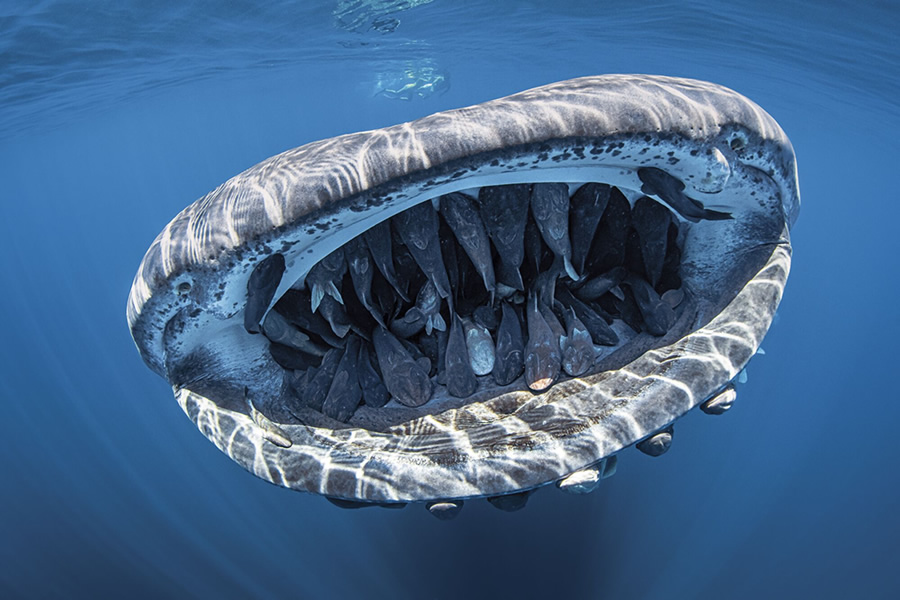
In June 2020, with a special permit, I went on an expedition to document marine life and the effects of reduced marine traffic due to COVID-19. After two hours in the water with a school of silky sharks near the surface, our boat captain yelled, “Whale shark, right behind you!”—a 12-plus-meter female. The surprise was twofold when I discovered about 50 remoras peacefully enjoying a free ride in her mouth!
Behavior, First Place: Jules Casey, Port Phillip Bay, Australia
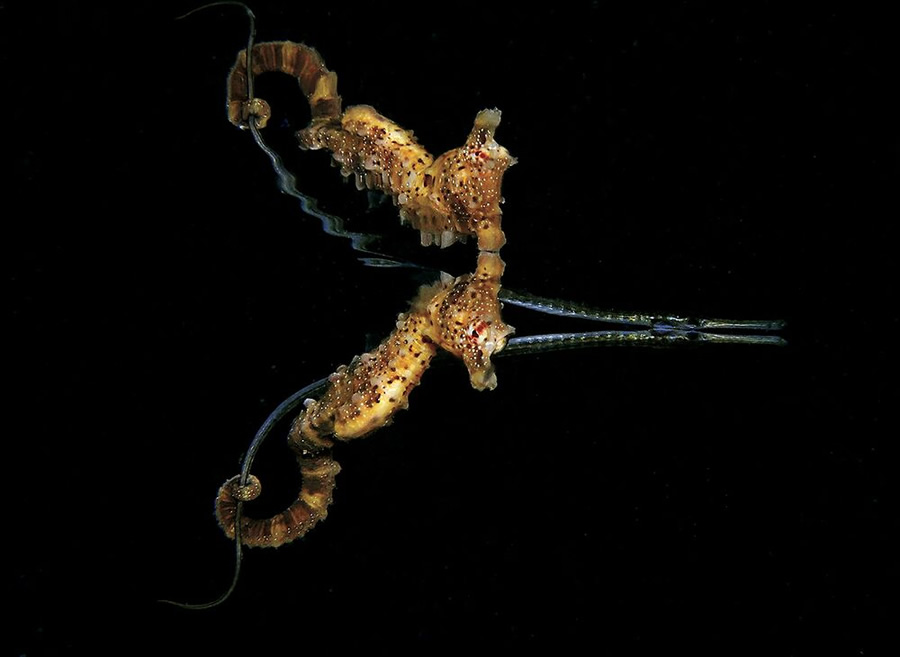
Captured during a daytime dive at Blairgowrie Pier in Port Phillip Bay, Australia, this shorthead seahorse was feeding near the surface and freely swimming from one floating piece of weed to the next. I’m not sure if the seahorse mistakenly grabbed hold of the pipefish with its tail, confusing it for a piece of weed, or if this was deliberate. The pipefish immediately struggled to break free from the seahorse’s grip. This interaction lasted only about 10 seconds, which was just enough time to set up the shot.
Behavior, Second Place: Jerry Arriaga, Ambon Bay, Indonesia
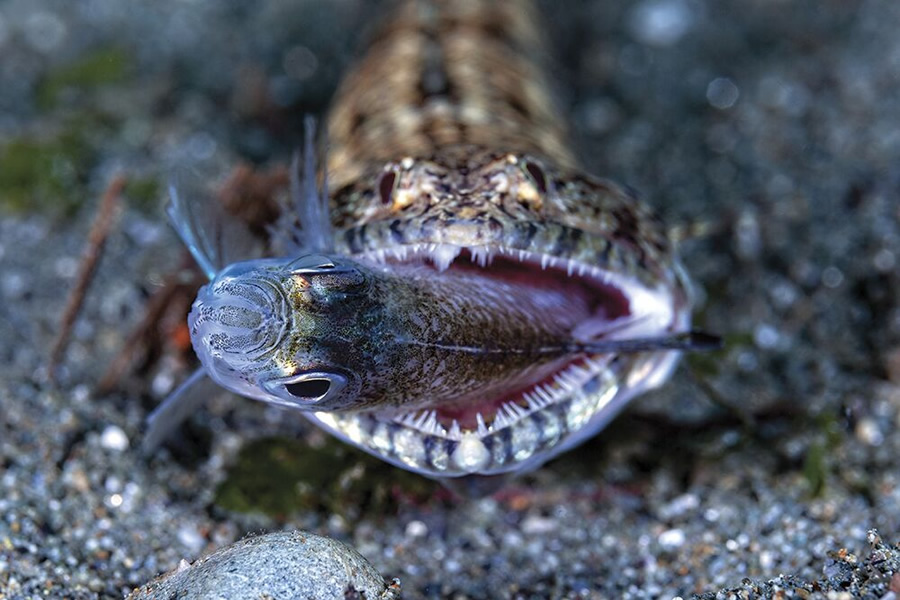
We were diving in the brilliant muck of Ambon Bay. I was swimming under the fishing boats at Laha, one of my favorite dive sites in the area. Out of the corner of my eye I saw the lizardfish suddenly dart off its rock perch. It was really fast, like a torpedo! I quickly swam closer to find the lizardfish with a damselfish in its mouth. I managed to capture this image just before the lizardfish swam off with its tasty meal.
Behavior, Third Place: Thomas Van Puymbroeck, Marsa Alam, Egypt
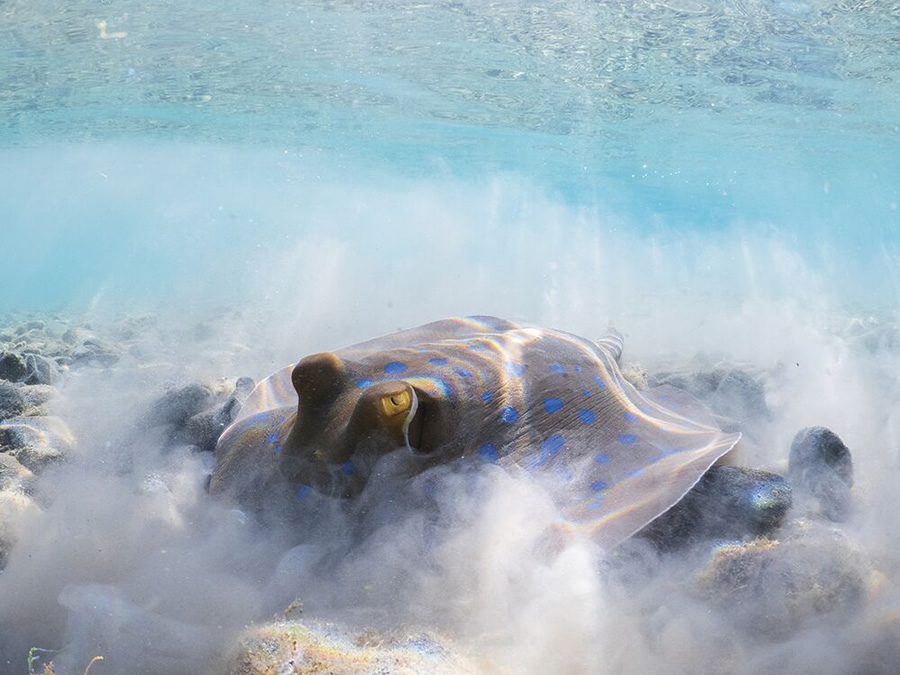
This shot was taken in very shallow water. While on honeymoon, we couldn’t resist the call of the water, so my wife and I went snorkeling every morning. One day, a lot of silt caught my attention. In the silt, this beautiful stingray appeared. I only had a very short window to shoot, because the silt was spreading everywhere. The stingray was feeding on tiny critters in the sand. After a few seconds, the ray disappeared and we continued to enjoy the beautiful Red Sea and our honeymoon.
Compact Camera, First Place: Tobias Friedrich, Anilao, Philippines
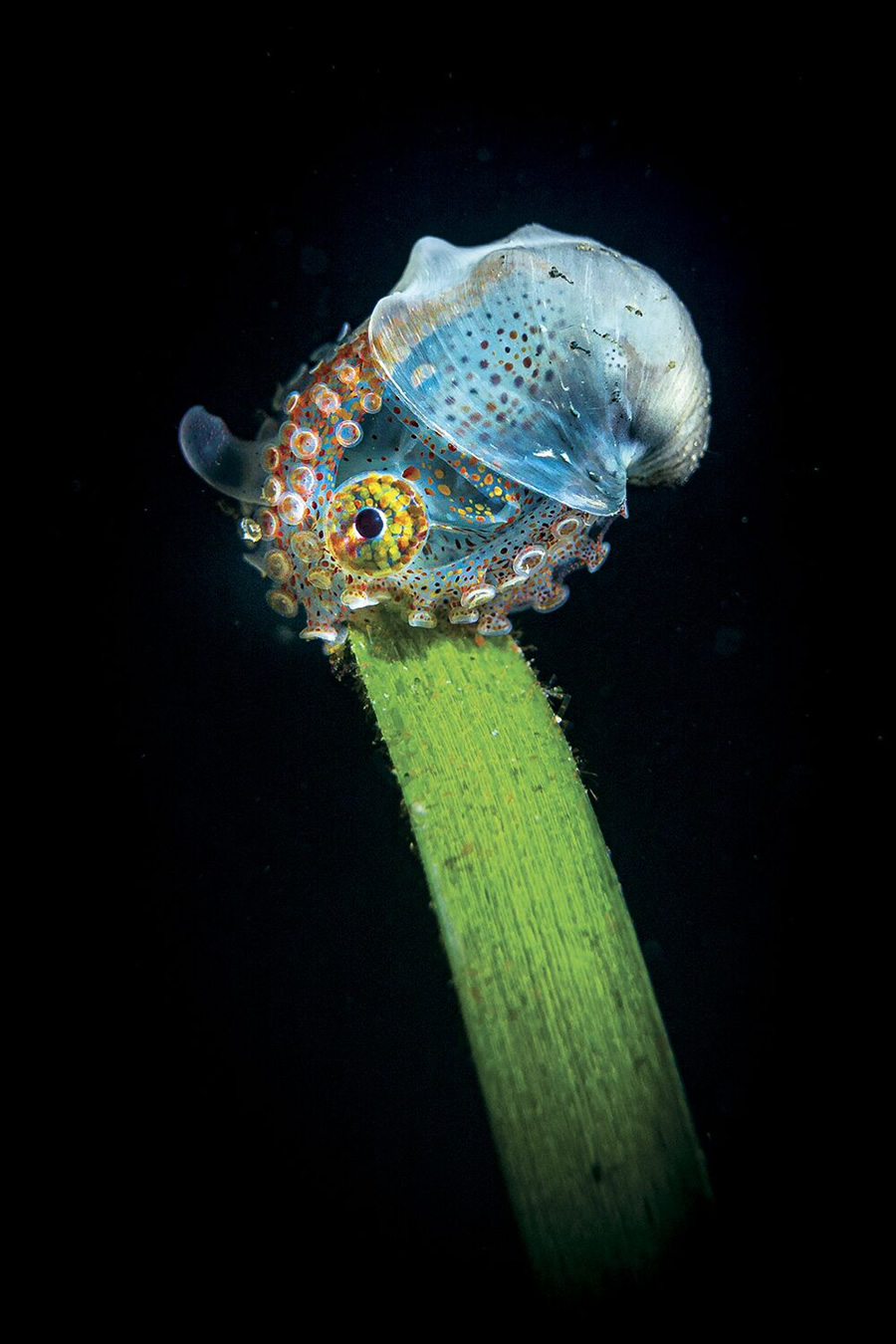
As a SeaLife camera brand ambassador I always have a DC2000 with me, in addition to my DSLR setup, to take a few side shots. I find it very interesting to see what I can shoot with a very small camera like the SeaLife and how close I can get to the quality of the images I shoot with my DSLR. This juvenile wonderpus was sitting on a palm leaf, a very nice subject to be tested. The dive was done near Anilao, Philippines, with Crystal Blue Resort and the support of photographer Mike Bartick.
Compact Camera, Second Place: Marcelo Johan Ogata, Lembeh Strait, Indonesia
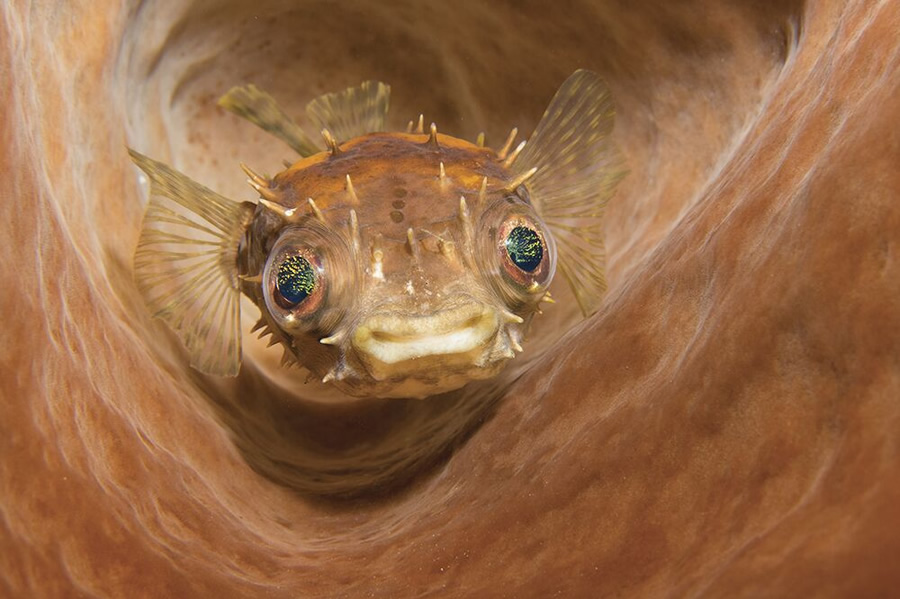
Have you ever had the feeling that a fish could be laughing at you? The funniest thing about this dive was that it took me ages to realize there was a porcupinefish inside the barrel sponge! I had my eyes glued on the sponge, looking for hairy squat lobsters, and only after a while did I see this camouflaged guy moving away from my camera with a smile on his face!
Compact Camera, Third Place: Enrico Somogyi, Anilao, Philippines

While diving in Anilao, the macro capital of the Philippines, my spotter showed me a seemingly empty beer bottle in the sand. But there was something living inside. I started shooting the lemon goby that was living there. After a while, I noticed a shadow in the background, and a few seconds later, I saw the juvenile lionfish coming out. I pushed the shutter right when the goby started to yawn and the lionfish looked in the camera.
Macro, First Place: Jeffrey Haines, West Palm Beach, Florida
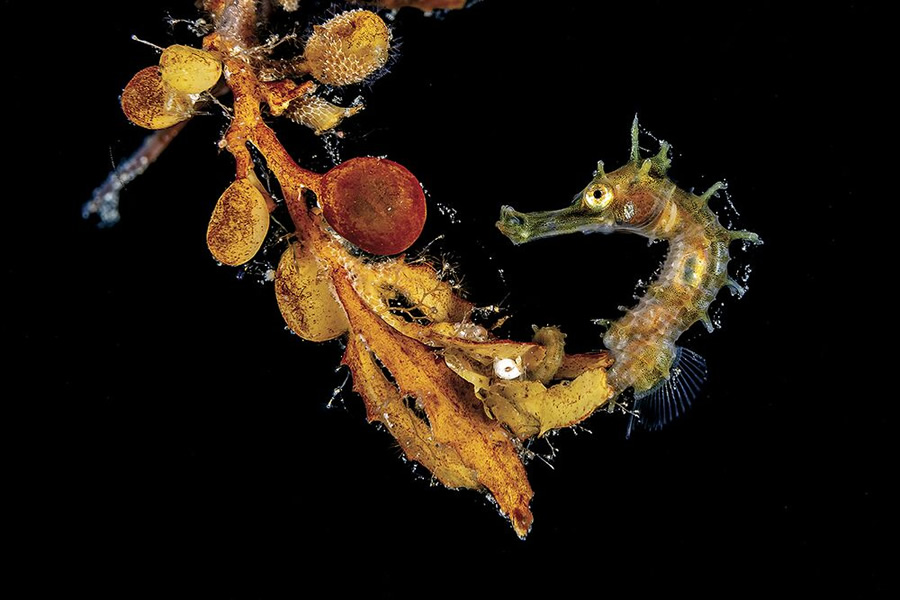
You never know what you are going to find when you go on a black-water dive. One night it may be tiny larval fish, another a mako or silky shark, but mostly you are searching through the plankton for tiny creatures as you float along with the current over deep water. Persistence and concentration are the keys to success in finding your subject as you drift along. About 45 minutes into my 90-minute dive, I started to spot small clumps of sargassum floating by, always an exciting sight on a black-water dive. I found this seahorse in the third clump I investigated.
Macro, Second Place: Yury Ivanov, Bali, Indonesia
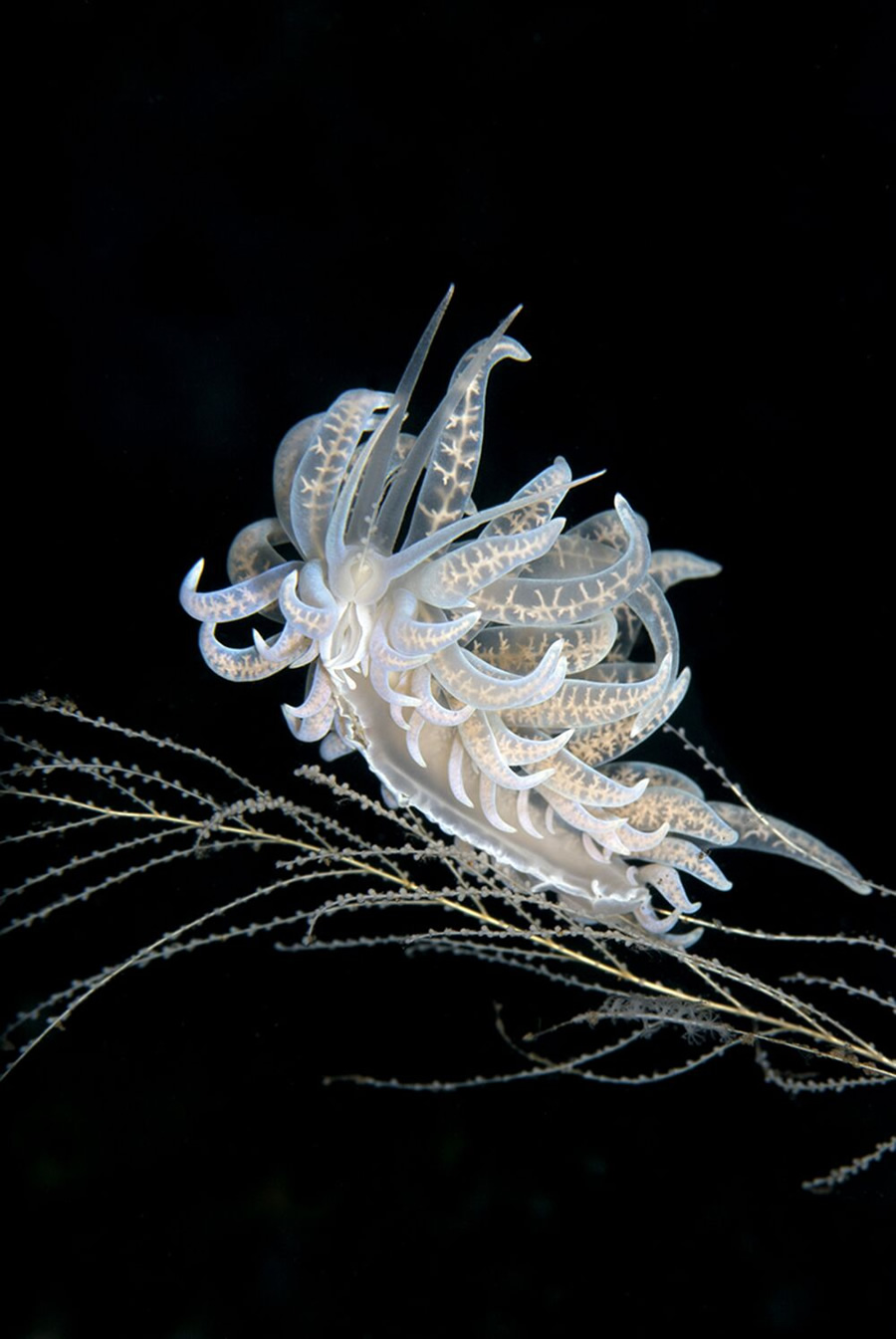
These nudibranchs are one of my favorite models for underwater photo sessions. I call them “the vivid colors of the sea” or “snow queens.” Here, Phyllodesmium iriomotense can be seen feeding on one of its favorite dishes: spindly gorgonian coral. This photo was taken at a depth of 32 meters (105 feet). The time allotted for photography is very limited at that depth, so I did four dives in order to get this photo.
Macro, Third Place: Robert Stansfield, Banco Chinchorro, Mexico
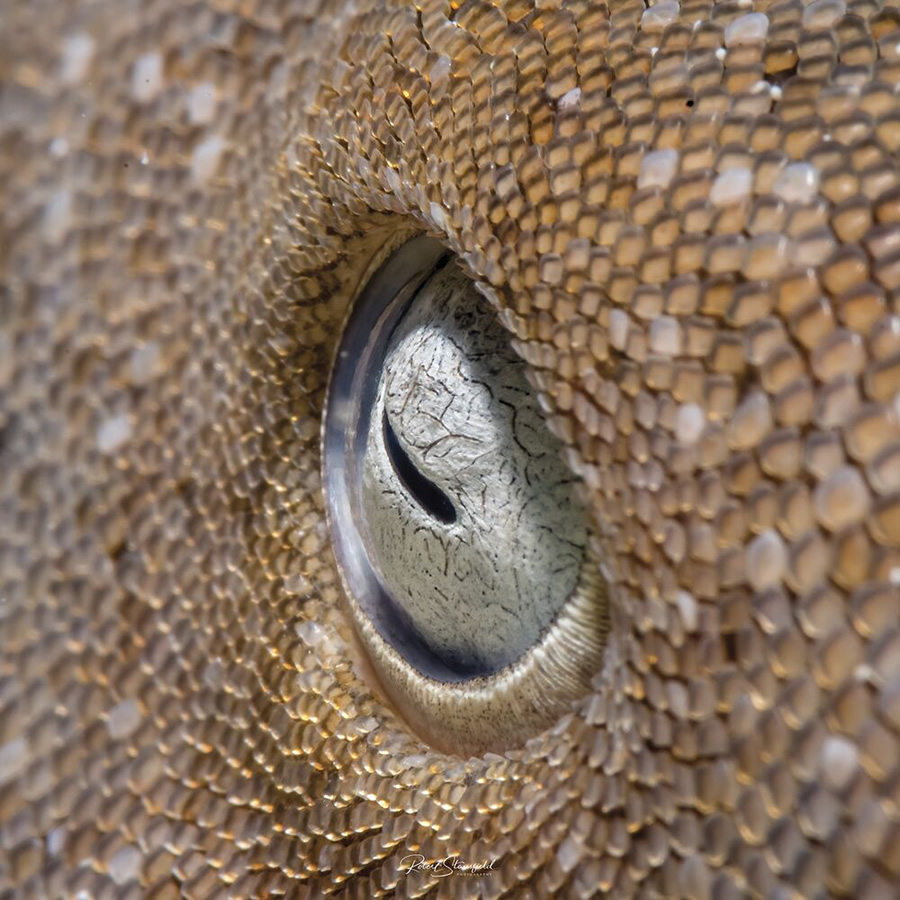
In November 2019 I signed up for 14 days diving on Banco Chinchorro with my good friend Heiko of Amigos del Mar, Mahahual. As a joke, Heiko set me a goal of seeing how many different species I could capture during my time there, so I opted for a 105mm to give me a bit more reach even though diving there lends itself much more to a wide-angle lens. On my second dive, I was setting myself up for a low-angle photo of a group of garden eels when I felt something nuzzle under my arm. Looking down, I saw this very confident 7-foot nurse shark looking back at me. I slowly moved up and back, repositioned the strobes and took a series of photos with the denticles slightly backlit. The nurse sharks around Banco Chinchorro are very bold and a joy to watch.
Wide-Angle, First Place: Martin Strmiska, Puerto Morelos, Mexico
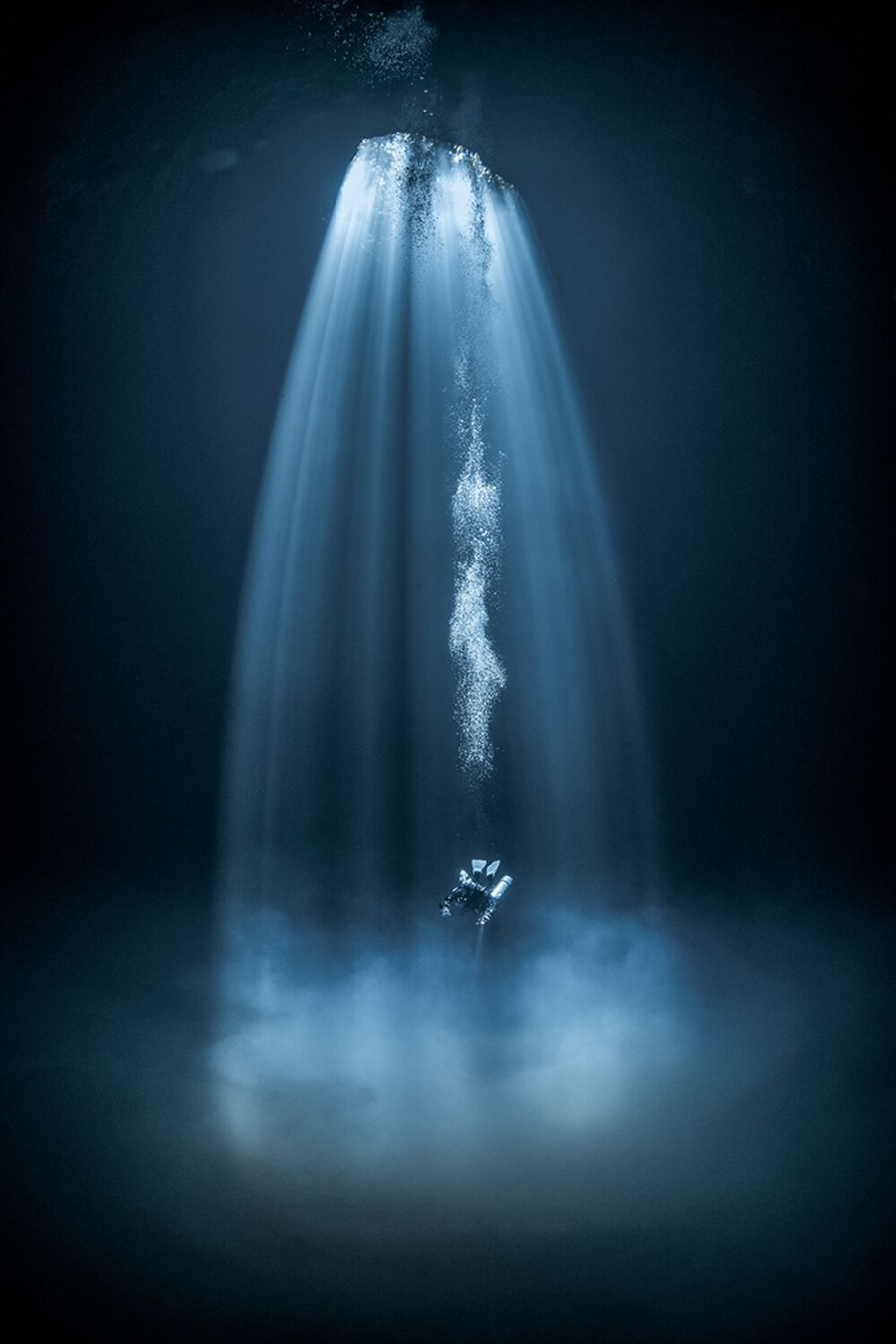
On the surface at the cenote’s entrance, I had no idea what sort of space lay beneath the small pool. Only when I descended and positioned myself outside the area lit up by sun was the dark space revealed. When my eyes adjusted to the darkness, I perceived the huge dimensions of the space. My buddy, hanging above that cloud and lit by sun rays, appeared so small that I spent the whole dive shooting from distance, trying to capture the tiny diver in that huge space.
Wide-Angle, Second Place: Marc Henauer, Amorgos Island, Greece
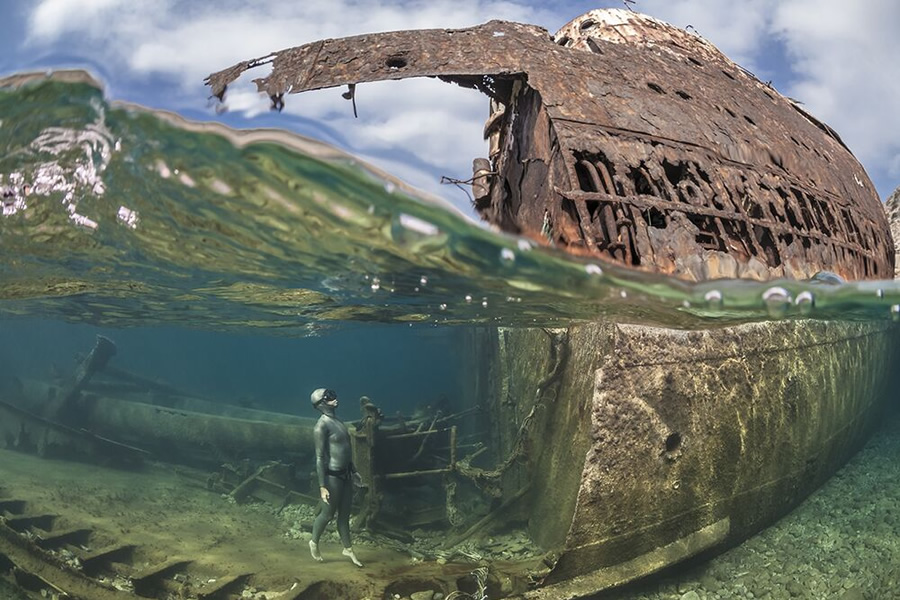
The Olympia shipwreck can be seen in the 1988 Luc Besson movie The Big Blue. It ran aground near shore on Amorgos Island in Greece. The secret of this image lies in the synchronization. To succeed, it took a ray of sunlight to illuminate the underwater landscape, then a wave arrived with the right angle on the dome to have a good view above and below, and finally, the freediver had to hold position facing the wreck. It took a lot of rehearsal.
Wide-Angle, Third Place: Raffaele Livornese, Baja California, Mexico
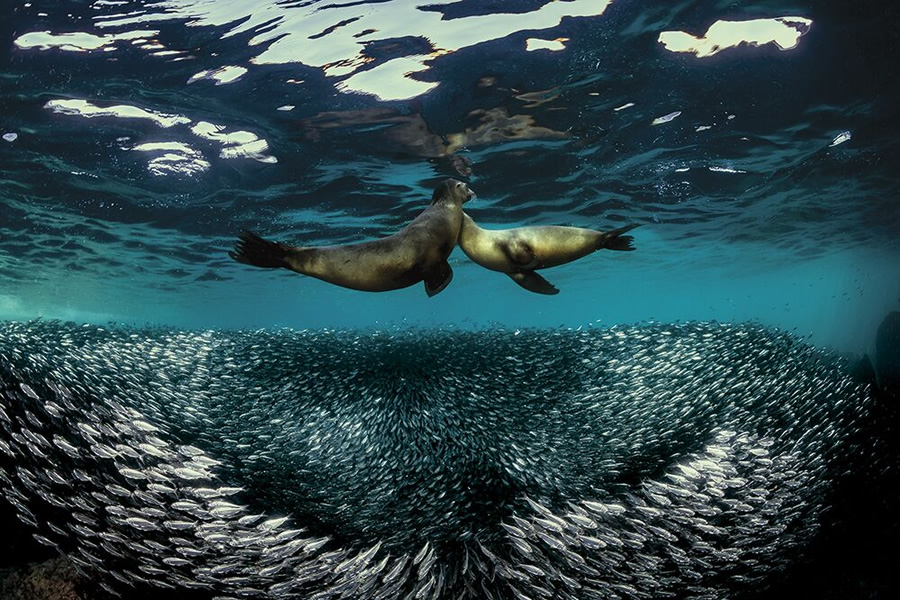
I took this picture last October in Baja California. It was my first time there, so it took a few days to get more confidence with the sea and the animals that live there. I was very lucky because at that time a lot of sardines were schooling there, so the sea lions were constantly playing and hunting them. To take this picture I was hovering at a shallow depth for a long time, looking for the right moment to push the button. When it arrived, I saw the two sea lions swimming first away, then toward each other. The sardines moved in the same way to escape the hunt, so they drew two lines like parallel waves, and I got it.
Honorable Mention: Martina Andres, Red Sea
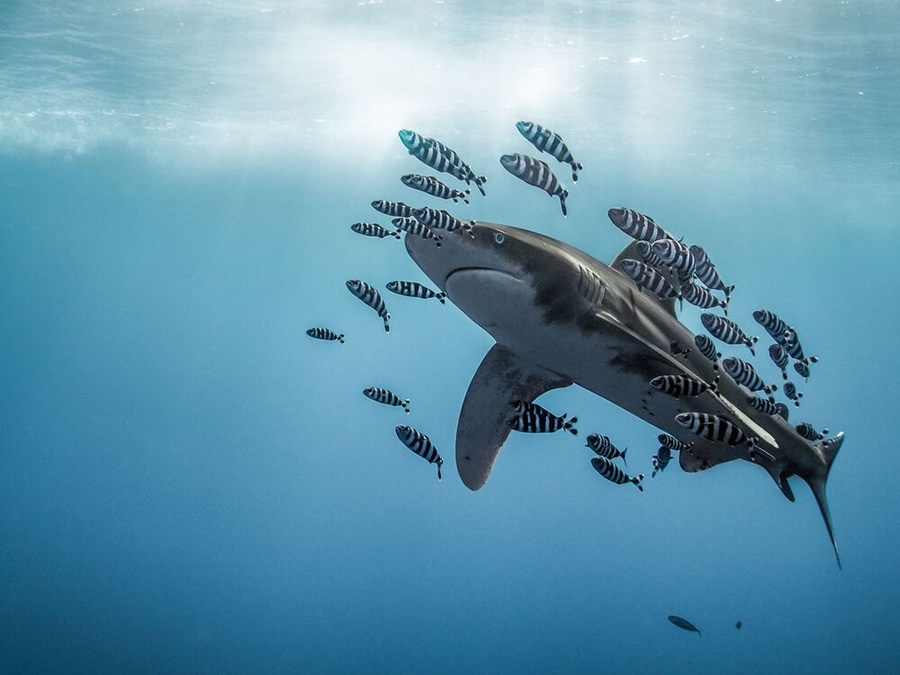
As a diver, you will never forget your first big shark. I felt eternally grateful to encounter this beautiful oceanic whitetip shark in the Red Sea. As we neared the very last minutes of our dive, she and her “entourage” slowly circled our group, peacefully looking at every single one of us, before they took off into the blue again.
Honorable Mention: Martin Strmiska, Styria, Austria
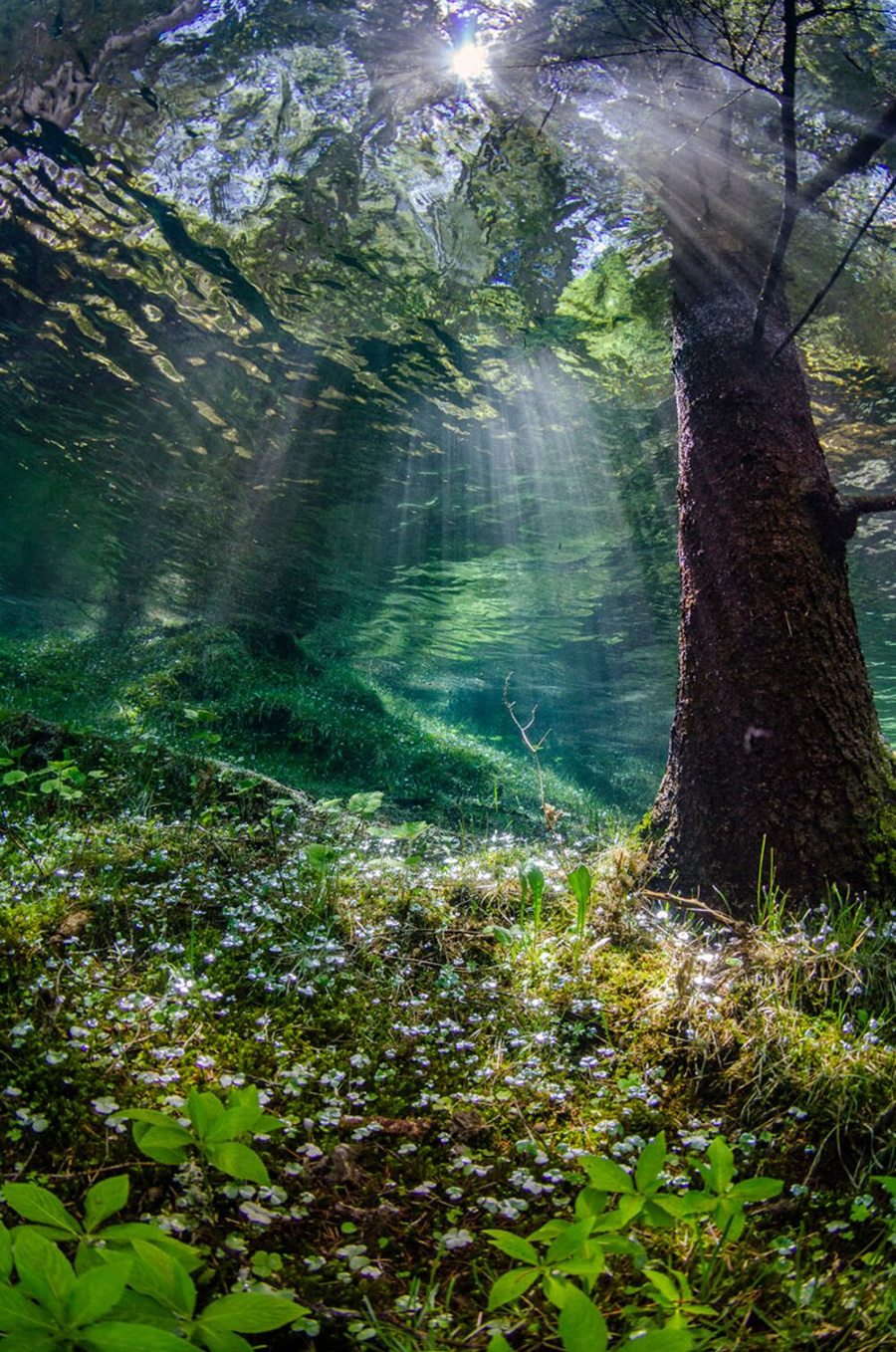
In early spring, while the mountain peaks around the village of Tragoess are still covered in snow, the meadow lining Grüner See (Green Lake) blooms. Only in later months, when night temperatures don’t fall below freezing, does the snow melt and travel down the creeks to fill up the lake with crystal-clear water. The meadow, with freshly bloomed flowers and rich green grass, gets flooded and for the next two months creates an amazing underwater park.
Honorable Mention: Marc Henauer, Amorgos Island, Greece
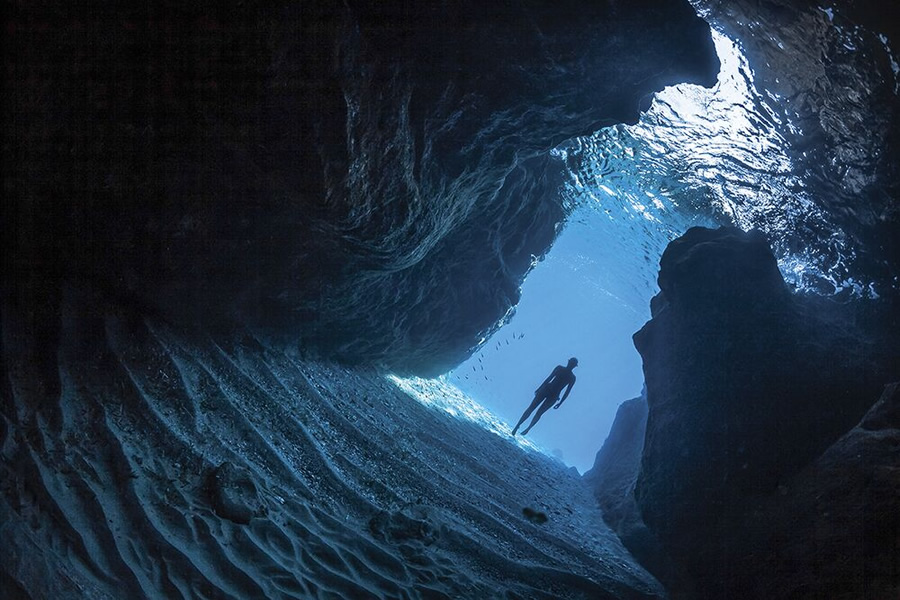
This image was taken in Greece, on Amorgos Island. There are many caves like this along the coast. The darkness contrasts with the typical blue of the Aegean Sea. Greece is also a paradise for freediving. The settings offer total freedom to the imagination and to the creation of poetic images.
Honorable Mention: Massimo Georgette, Jardines de la Reina, Cuba
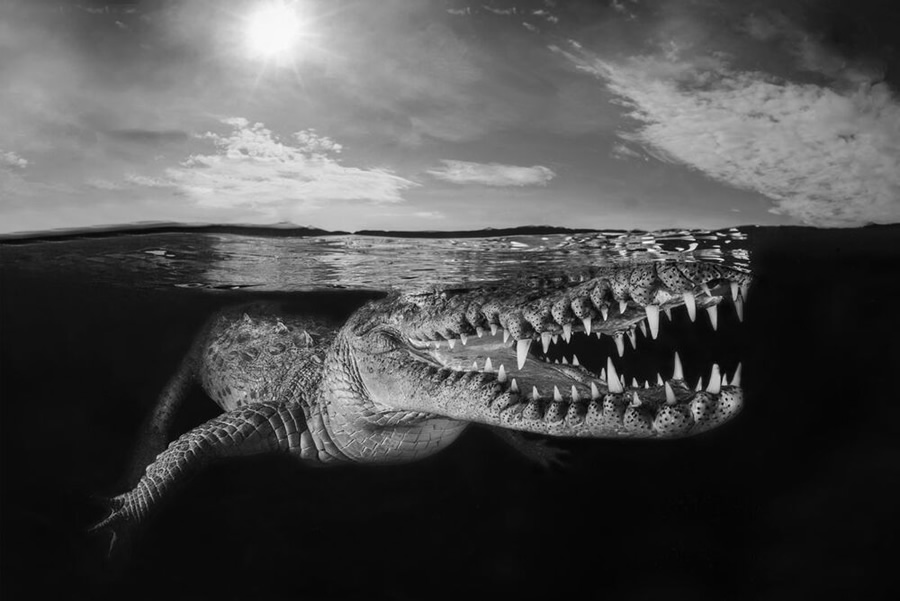
In this Cuban archipelago, among the mangroves, lives a small colony of American crocodiles. To make a series of photos I had to go in the water with them for three days, studying the currents, the light and the clarity of the water. Then I waited until the crocodile was in the right position against the backlight. The idea was to have the best contrast between the reflection of the sun and the color of the water.
Honorable Mention: Renata Romeo, Sharm el Sheikh, Egypt
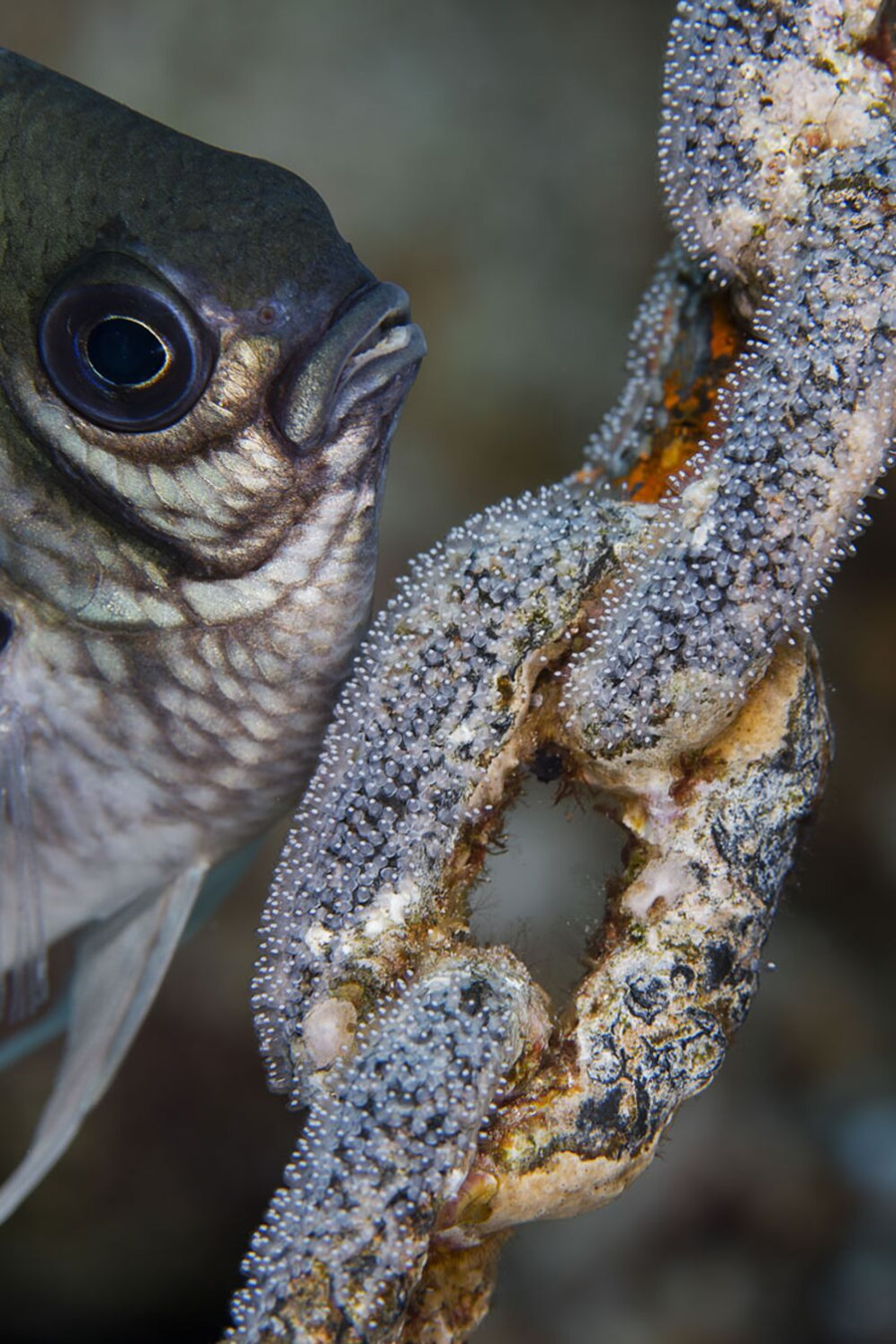
During a dive in Sharm el Sheikh, I saw an old chain and my attention was caught by a whitebelly damselfish circling around it. When I was close enough, I saw the eggs on it, so I understood that he was oxygenating and protecting them, ensuring reproductive success, and I took some photos of this loving parental male care behavior.
Honorable Mention: Sean Steiniger, Ha‘apai Island Chain, Tonga
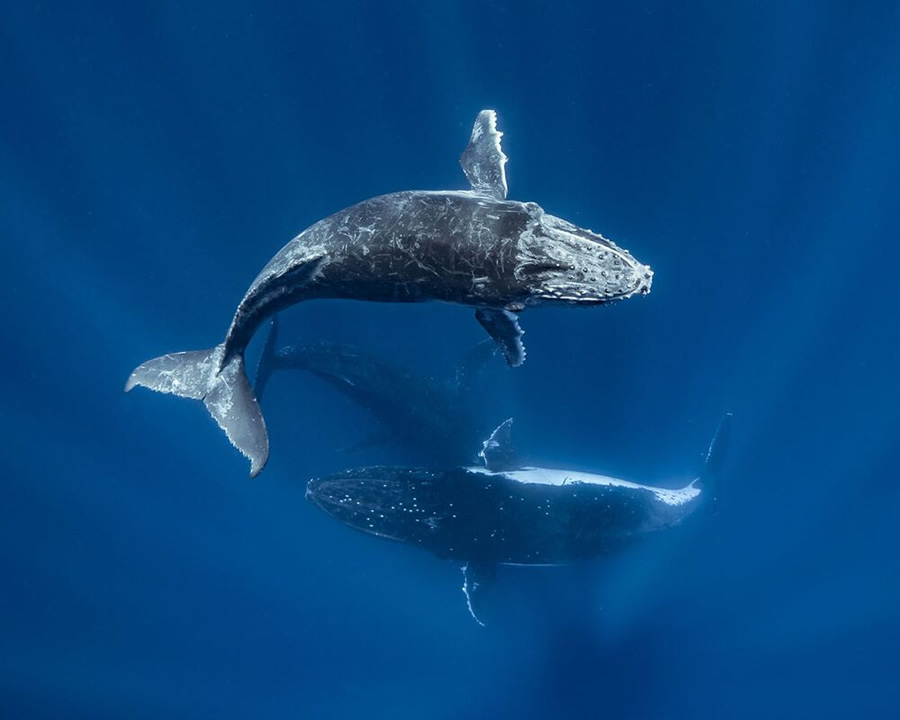
A humpback whale calf sails through the emerald-blue waters of Tonga, closely accompanied by its colossal mother and escort. As the leviathans circle directly beneath me, the calf ascends toward the surface for fresh air. I tuck back my freediving fins and snap the shot. A split second later, momma surfaces to usher her baby away from the bubble-blowing stranger.
Honorable Mention: Dennis Whitestone, Palm Beach, Florida
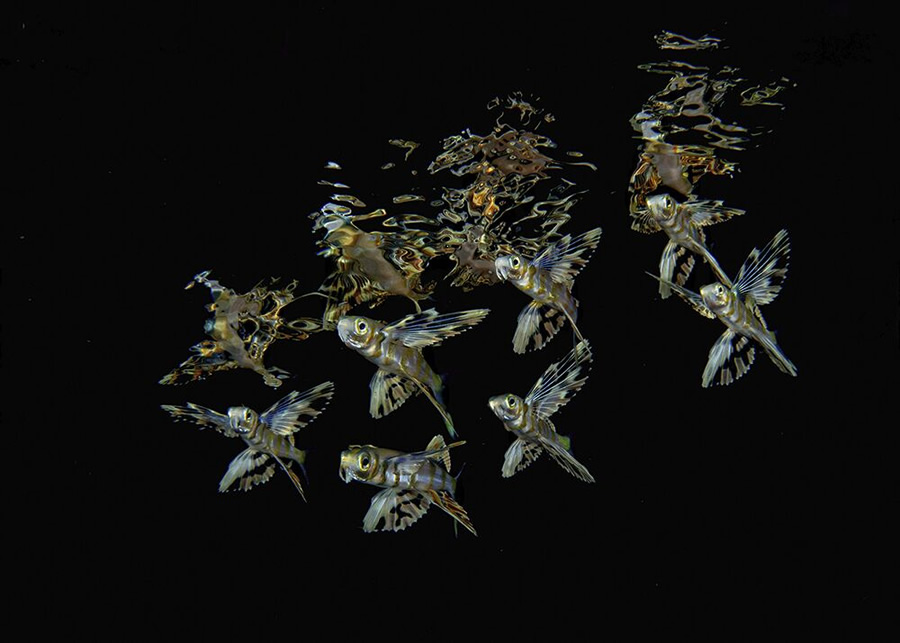
I captured this flying fish image, “Squadron,” on May 31, 2020, diving around a patch of sargassum just a few feet below the surface while on a black-water dive with Walker’s Dive Charters in Palm Beach, Florida. As I was entering the water, my good friend Lazaro Ruda informed me that there was a school of flying fish on the surface. Within a few minutes I was able to capture the photo.
Honorable Mention: Andrey Shpatak, Sea of Japan
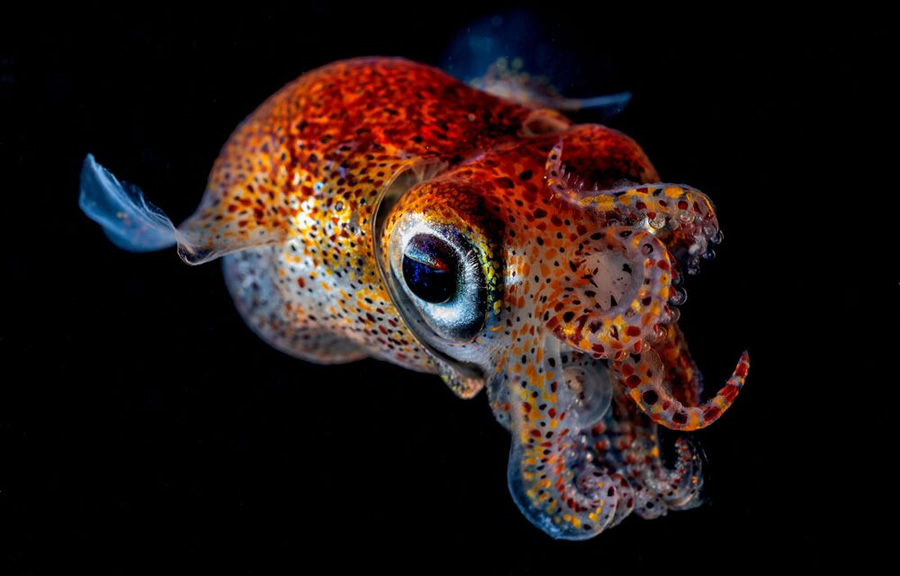
Sepiola birostrata is one of two species of cuttlefish resident in the northern Sea of Japan. During the day, it hides on the sandy bottom and can be found only by chance. But at night it goes hunting. Despite their small size [around an inch], these cuttlefish are predators, catching shrimps and crabs. There are usually a lot of them in July, above the sandy bottom, at depths from 15 to 40 feet. I managed to meet this beauty during a night dive. Its color was simply gorgeous.
Honorable Mention: Chris Gug, Bonaire
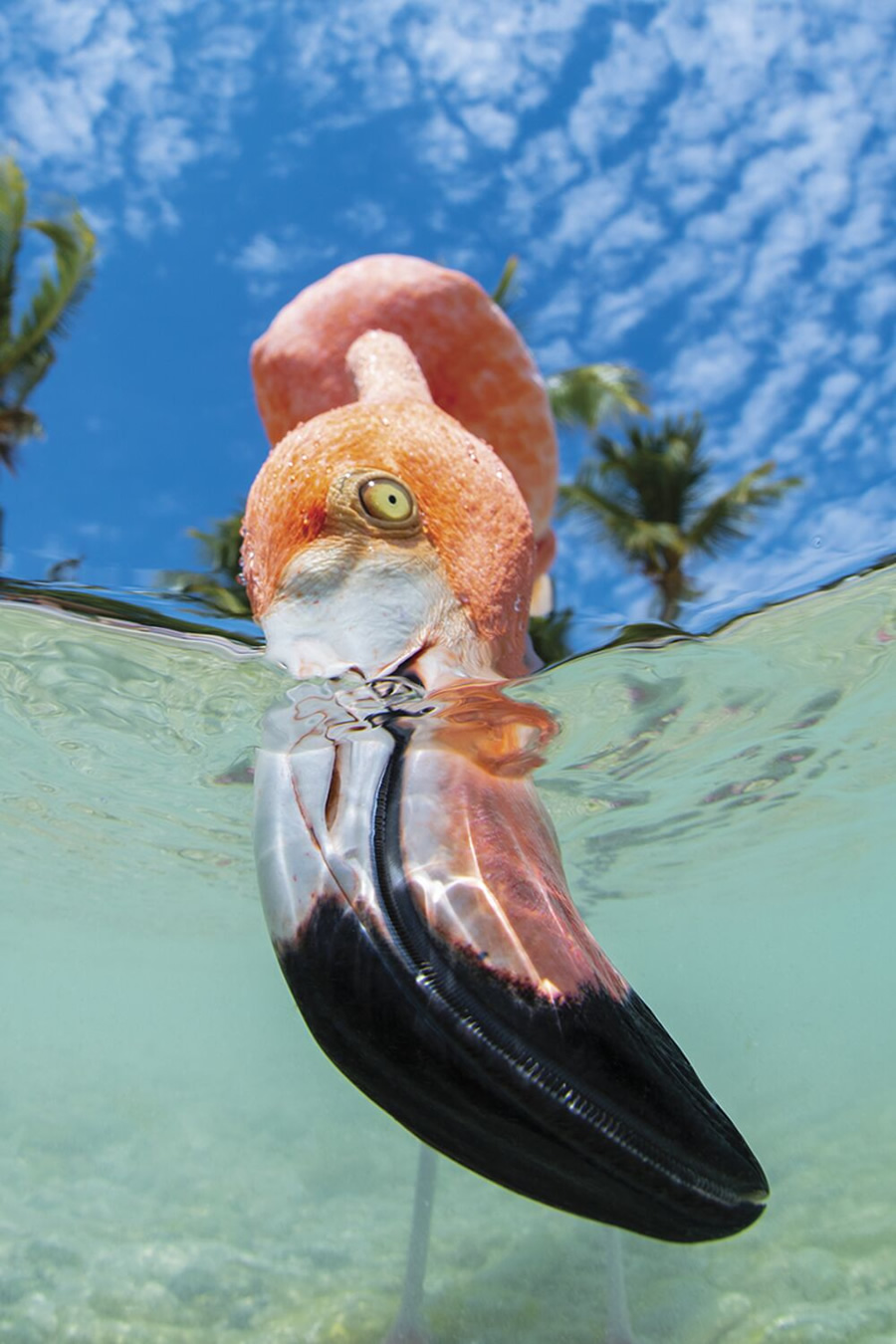
After what seemed like an eternity, the flamingos resumed feeding in the sandy mud where I had been lying motionless since sunrise. As they waded past, they kicked up quite a bit of silt, which landed on my camera’s dome port. This one, being either very inventive or very brave, saw that silt had fallen into my port’s flare petal and began slurping it up, giving me a very brief opportunity to capture those unique filter-feeding serrations in its beak, and that beautiful beady yellow eye.
Honorable Mention: Enrico Somogyi, Anilao, Philippines

How did Enrico Somogyi—a repeat winner in Scuba Diving’s annual photo contest who took an Honorable Mention with this Anilao reef squid—capture this shot? “I tried a slow shutter technique with a flash with snoot,” he says, “and colored flashlights.”
Honorable Mention: Lureen Ferretti
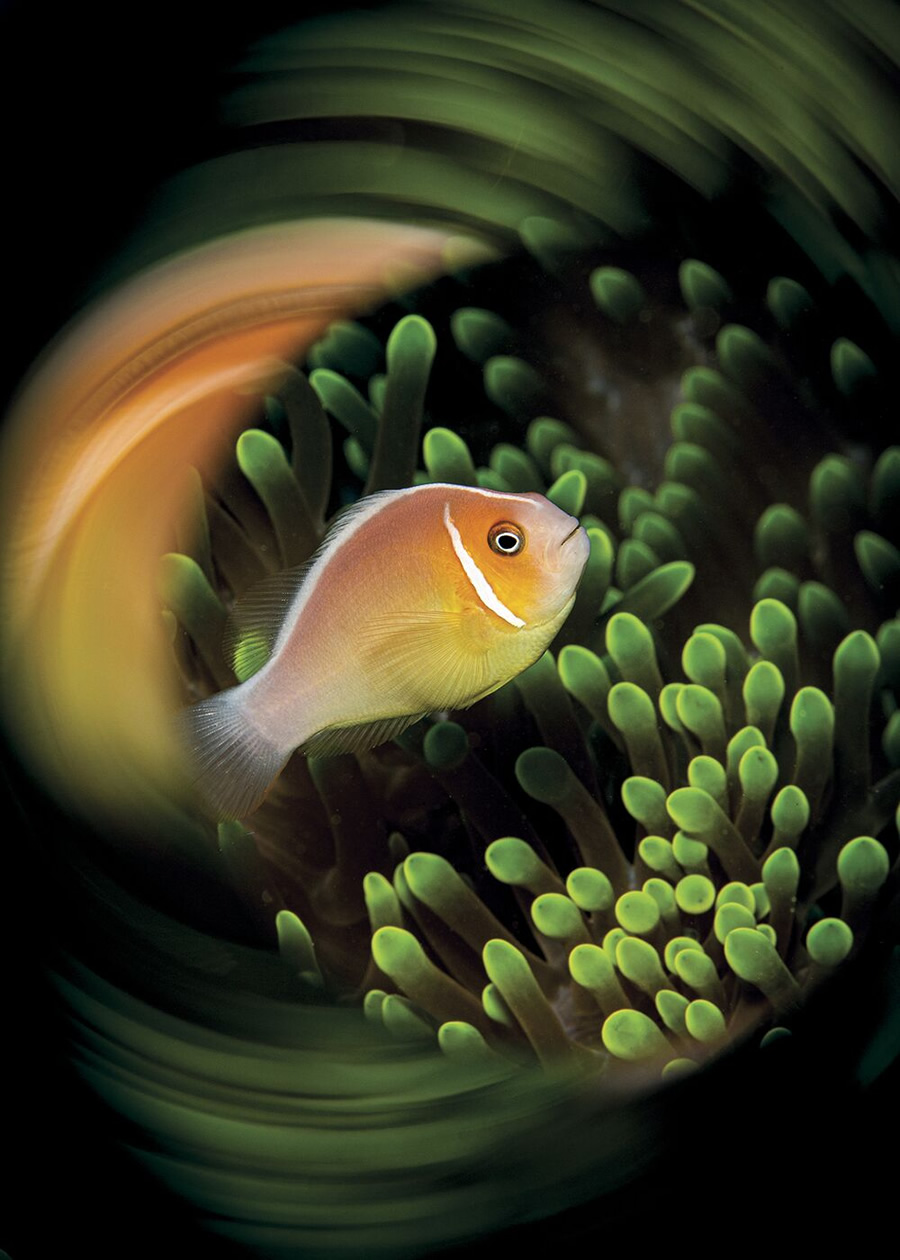
Honorable Mention: Franco Tulli

“THE FIGHTERS” While most of our photo contest judges took this to be a courtship behavior, Franco Tulli’s title tells us otherwise. “Pseudanthias are mainly composed of females and non-territorial males, but at certain times of the year it is possible to see other males fight for territory and defense of their harems,” Tulli explains.
Honorable Mention: Enrico Somogyi
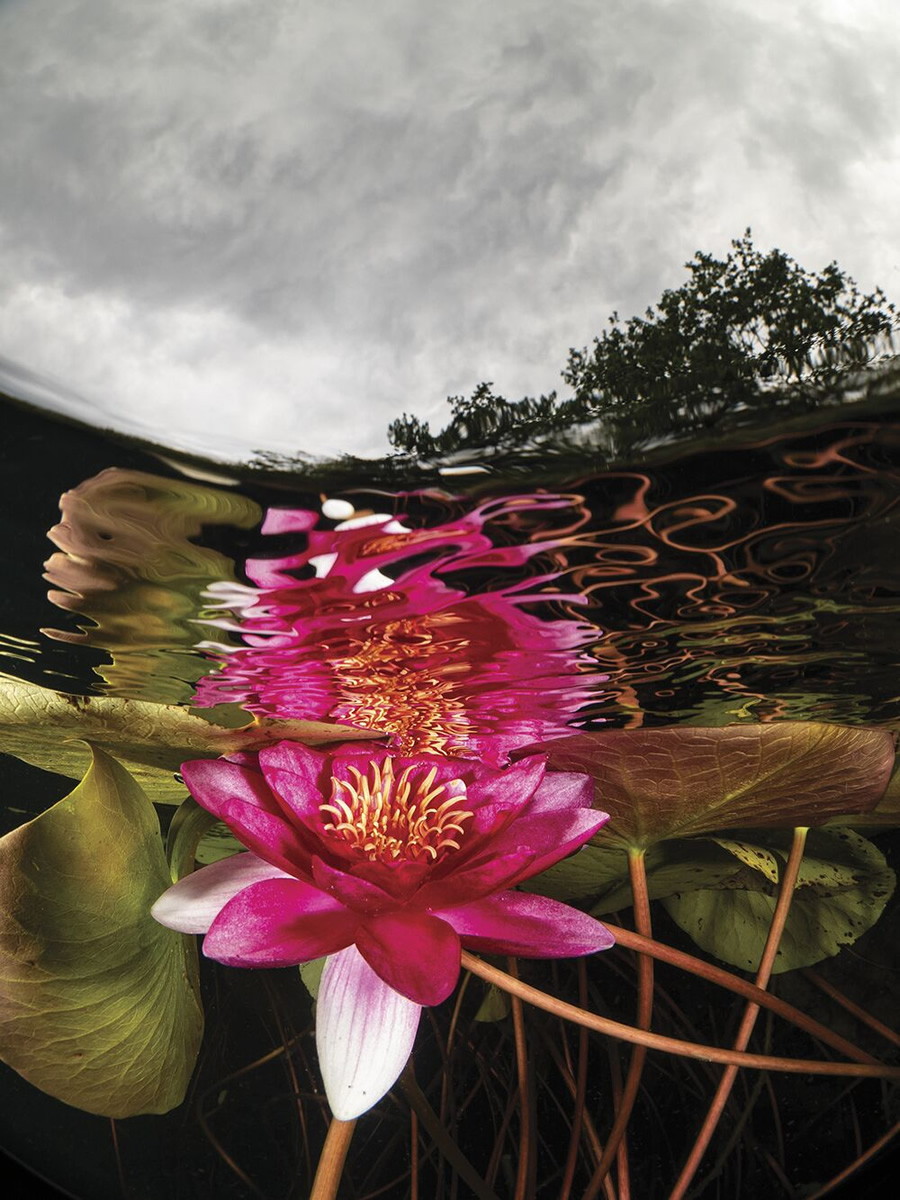
With most traveling divers carrying a camera these days, it can be hard to find novel subjects. Enrico Somogyi solves this problem by approaching the familiar in new ways, and by varying his techniques, like this over-under of a water lily in Kirchbruch, Germany.

